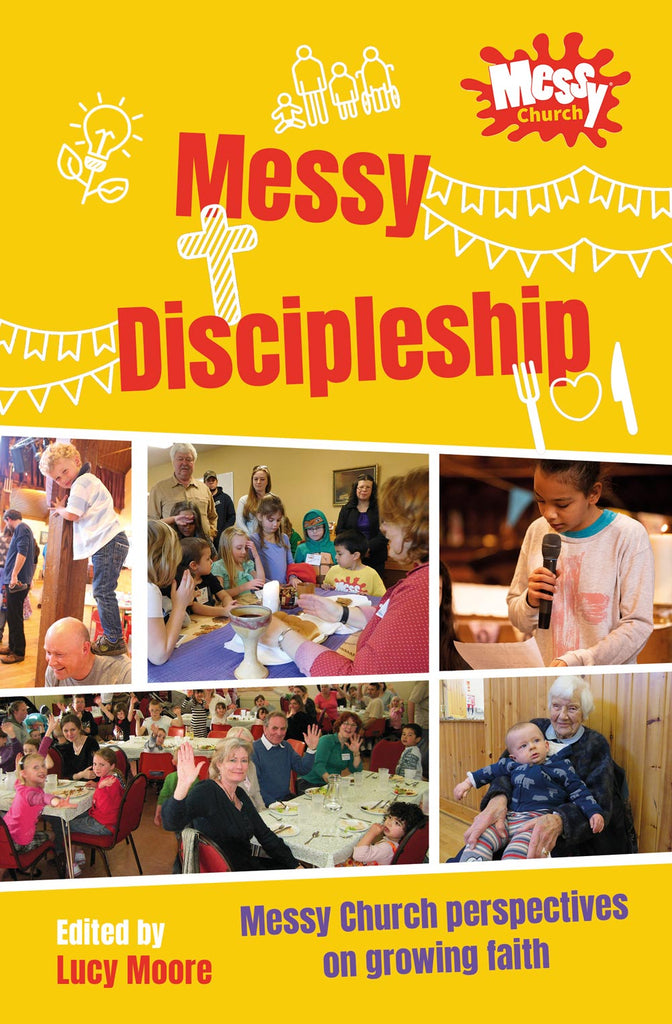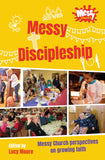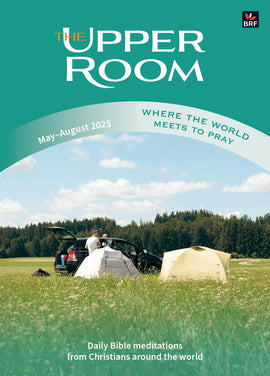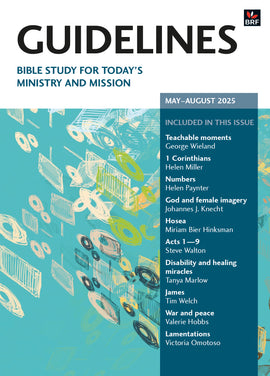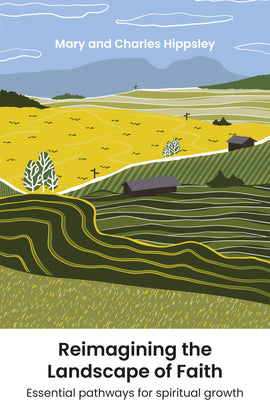Messy Discipleship: Messy Church perspectives on growing faith
An in-depth exploration of how Messy Church is addressing the discipleship question
Described as being ‘deeply serious about discipleship’, Messy Church has much to share, as well as much still to learn.
| Title | Messy Discipleship: Messy Church perspectives on growing faith |
| Editor | Lucy Moore |
| Description | Described as being ‘deeply serious about discipleship’, Messy Church has much to share, as well as much still to learn. As the fastest-growing fresh expression of church in the UK, Messy Church has learnt a thing or two about discipleship since its beginnings in 2004. This collection of perspectives, edited by Messy Church founder Lucy Moore, brings academic analysis and practitioner wisdom to bear on a key question for today’s church, capturing the latest thinking and learning from the Messy Church context. Individual chapters examine each of the core Messy Church values and how these work in practice to promote discipleship. |
| Details |
|
Described as being ‘deeply serious about discipleship’, Messy Church has much to share, as well as much still to learn.
As the fastest-growing fresh expression of church in the UK, Messy Church has learnt a thing or two about discipleship since its beginnings in 2004. This collection of perspectives, edited by Messy Church founder Lucy Moore, brings academic analysis and practitioner wisdom to bear on a key question for today’s church, capturing the latest thinking and learning from the Messy Church context. Individual chapters examine each of the core Messy Church values and how these work in practice to promote discipleship.
Lucy Moore is the founder of Messy Church. She promotes Messy Church nationally and internationally through training and speaking events, and is the author of a number of books for BRF.
Claire Dalpra
Claire Dalpra has worked for Church Army’s Research Unit since 1999, where she also trains new evangelists and leads the internal review process. Alongside this, she undertakes external research work for clients, including Playfully Serious and the Deepening Discipleship in Messy Church project. Claire lives in Sheffield with her husband and teenage daughter, helping to lead children and families work in an inner-city parish.
Tom Donoghue
Tom Donoghue is the evangelist at Cliff College, helping to equip the church for evangelism and mission. He leads the Cliff Year (gap year) and is a member of the Methodist Church Evangelism and Growth Team, where his work is focused on young evangelists. He loves Messy Church and is a member of the national support teams.
Chris Barnett
Chris Barnett is based at the Centre for Theology and Ministry (Melbourne, Australia) in a role that encompasses responsibility for intergenerational ministry (children and their families) across the Uniting Church Synod of Victoria and Tasmania. This role includes a strong emphasis on intergenerational engagement, with a focus on consultancy, advocacy, resourcing and training. Chris is a keen participator and resourcer across a variety of networks, including the Australian Intergenerational Roundtable and the Australian Messy Church Roundtable.
Sandy Brodine
Sandy Brodine is a minister of the word in the Banyule Network of Uniting Church, Australia. She is responsible for four emerging faith communities, including two Messy Churches. She has a passion for creative worship and for helping new disciples grow imaginatively and strongly in faith. She lives with her husband, daughter and two dogs in Mitcham, Victoria.
Jocelyn Czerwonka
Jocelyn Czerwonka is the Messy Church Coordinator for the Diocese of Waiapu in New Zealand, which covers Bay of Plenty, Hawkes Bay and Eastland in the North Island. She is a member of the New Zealand National Messy Church team which hosted two National Messy Church Conferences in the North and South Islands in February 2020.
Martyn Payne
Formerly part of BRF’s Messy Church team, Martyn Payne has a background in Bible storytelling and leading all-age worship, and is passionate about the blessing that comes when generations explore faith together.
Transforming Ministry, Winter 2021. Review by Rosie Medhurst
‘It’s a good sign if a church has a bit of glitter still stuck to the floor’ said a friend of
mine. I have been privileged to take part in Messy Churches. I am also pleased to see that the Church Army Research Unit has been evaluating their progress. This short book comprises a commentary by the lead researcher, and articles by practitioners. It is partly more interesting, and partly more complicated, to read a commentary than to download the actual research, ‘Playfully Serious’. A comment that struck me forcibly questioned why 2800 Messy Churches have to defend themselves on their record of discipleship in a way that many inherited churches do not. Though it may falter at secondary school stage, intergenerational contact with Christianity for families with
pre-schoolers and primary-schoolers is thriving. Most encouragingly this is across the
economic and social spectrum. The articles by practitioners revisiting the core values –
Christ-centred, creative, hospitable, intergenerational and celebratory –
unsurprisingly overlap. The vision for hospitality after lockdown is new and important. Messy Church teams could use the discussion points at the end of most chapters as they and all churches wonder where God will lead post-pandemic.
Rosie Medhurst
Baptist Times online 02 July 2021. Review by Sandra Crawford
Here we have yet another book about Messy Church – but I have no problem with that. Messy church is the fastest-growing fresh expression of church in the UK, and from the earliest days Messy Church has been serious about researching and evaluating what they are about.
This book focuses on discipleship and is a collection of academic analysis and practitioner wisdom. The book asks the question ‘does messy church create an environment that is likely to sustain lifelong intentional Jesus centred living for all ages?’. The working definition of discipleship used is ‘an intentional following and learning from Jesus that is accompanied by specific actions that embody and encourage living in a Jesus way’.
I wholeheartedly agree with Lucy Moore’s frustration that Messy Church is still not viewed as proper church and the Biblical principle of all-age church is still only valued by the few. For so many their view of a perfect service is still the nostalgic dream of sending the kids out to Sunday School while we get on with proper church. Messy Church is not an activity we do to children and families occasionally as a feeder for the Sunday congregation, but it aims to be truly relational and intergenerational, where all benefit, all are equally valued and all give and receive.
How open are we as adults to growing, learning, and changing as a consequence of our relationships with children? Following five years of leading a Messy Church congregation, this book asks the questions I was asking, ‘if Messy Church is a congregation or church in its own right is there a challenge here for leaders to wholly commit to this and not be spread thinly across other church activities as well?’ If the team could focus just on Messy Church there would be more time for the team to disciple one another, learning and living the Biblical stories, and understanding how to communicate the story to those without any faith background.
As with many of the Messy Church books, each chapter leaves you with questions which can be considered by your team, and each book is a great resource to help you reflect, evaluate and plan. I wonder, do we ask the same questions of other areas of church life such as Sunday worship, midweek gatherings? As many of us are in the process of a post-pandemic re-think about church, many of the points raised in this book are worth considering.
Sandra Crawford is a pioneer minister in Jaywick

